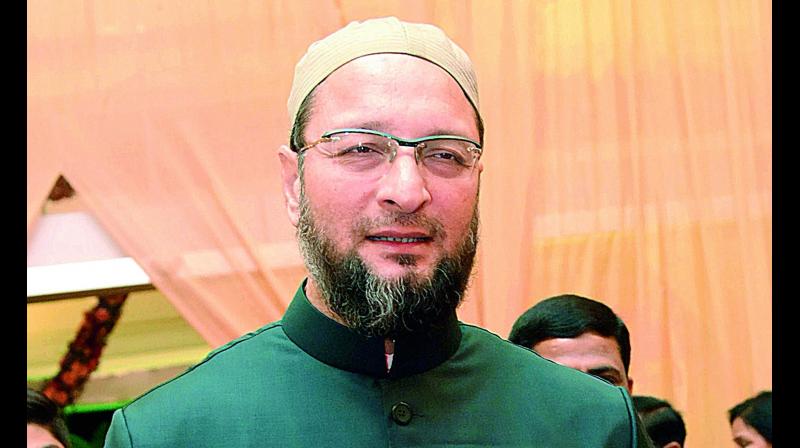Include 1% Muslims living below poverty line in Dalit Bandhu Yojana: MIM
An estimated 9,000 Muslim households living below poverty line will be considered under the scheme

HYDERABAD: Dalit Bandhu Yojana must also include one per cent of Muslims living below poverty line in the state, Asaduddin Owaisi, All India Majlis-e-Ittehadul Muslimeen president and MP, observed on Monday.
At a discussion, ‘Poverty in Telangana, poor among Muslims and various challenges’, Owaisi and other speakers emphasised on need to include Muslim beneficiaries within various schemes being implemented by the state government. Uplift of communities must involve both Hindus and Muslims, the participants in the discussion underlined.
Under Dalit Bandhu, each SC household is to be extended Rs 10 lakh. The Hyderabad MP said an estimated 9,000 Muslim households living below poverty line will be considered under the scheme. The state government will incur an amount of Rs 900 crore for the purpose, which is 0.8 per cent of the budget.
Owaisi said the reason for demanding this scheme for Muslims too has its basis in new data that nine per cent of Muslims are living below poverty line. Their economic condition is no better than Hindu Other Backward Classes, Scheduled Castes and Scheduled Tribe people.
The MP pointed out: "The Sudhir Commission set up in 2016 to assess social, economic and educational status of Muslims revealed that the community fares poorly on most human development indicators. Further research has shown that the situation has now only deteriorated. Thus, there is need for government intervention in uplifting Muslims too."
Data shows that dropout rate is very high among Muslims in primary and middle schools. In age-group of 16–20 years, only 49 per cent youth are studying. This percentage falls to 19 per cent in the 20-24 years age group.
In terms of housing only 57 percent own households, 7 per cent are in government jobs. Participation of females in work is only 18 per cent. Representation of Muslims in the three civil services – IAS, IPS and Indian Forest Service – is only three per cent in the state.
The percentage of Muslims owning agricultural lands is less than 15 per cent. 4.2 per cent are self-employed in agriculture and 4.9 per cent are casual labour involved in agricultural activities, Owaisi said. The Muslim workforce in the informal sector is more than 26 per cent in rural areas and 22 per cent in urban areas, which is more than that of other communities.
Owaisi said, ''The scheme for Dalits is welcome. It must be extended to Muslims also as there is empirical data showing their downtrodden condition. We are going to put forward these points when the assembly discusses the Dalit Bandhu scheme during its ongoing session," he stated.

